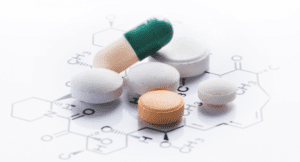Substance abuse impacts the way that individuals think and behave. According to the National Institute on Drug Abuse1, drugs and alcohol imitate the natural chemicals in the brain or they cause the brain to release too many natural hormones.
The “high” that a loved one experiences relates to that over-stimulation of chemical responses in the brain. When a tolerance and dependence develops, a loved one can start craving the drug or alcohol.
What Are Drug Cravings?
According to Psychology Today2, cravings refer to the strong memories of substance abuse that occur when a situation brings up the memory. For example, a loved one will crave alcohol when he or she walks into a bar or a restaurant with a bar. The environment stimulates that memory and tempts the individual to use the substance because of a craving.
The National Institute on Drug Abuse1 explains that the reward system in the brain ensures that humans repeat certain activities. For example, humans feel pleasure when eating food or when exercising because the brain releases dopamine and rewards the behavior. Unfortunately, drug abuse causes the brain to flood the body with the pleasure hormones in an amount that far exceeds normal rates. That encourages substance abuse and ultimately causes cravings for the substance.
Each individual has different levels of vulnerability to a substance, says the National Institute on Drug Abuse3. In some cases, cravings and dependence on a drug develop at a fast pace. In other cases, a loved one will not develop cravings until he or she abuses a substance for an extended time period.
Stress, Emotions and Cravings
Web MD4 says that the same area of the brain that regulates emotions will regulate cravings for any substance. Due to the way that the substance impacts the brain, strong emotional responses and stress trigger cravings and make an individual tempted to abuse a substance.
Stress, in particular, makes substance abuse tempting because a loved one uses the drug in an attempt to calm the negative emotion. Other emotional challenges, like depression, anxiety or mood disorders, cause cravings for a substance.
Learning positive ways to handle negative emotions and stress helps reduce the impact of cravings when a loved one starts working on recovery. The best coping strategies will depend on the individual and his or her specific situation.
Coping With Cravings
Long-term recovery goals must consider the possibility of craving a substance. The National Institute on Drug Abuse (5) says that therapists and treatment professionals work with an individual to help him or her avoid situations that encourage substance abuse.
Solutions that help with recovery goals include:
- Identifying specific triggers or situations that cause cravings
- Learning ways to avoid cues
- Enjoying relaxing activities, such as reading, meditation or yoga
- Exercising regularly
- Eating a healthy diet
- Talking about the cravings
Psychology Today (2) says that cravings naturally occur when an individual starts working on recovery from substance abuse. Recognizing when they occur and remaining calm until the craving passes allows a loved one to focus on obtaining his or her goals.
Learning Positive Ways to Cope
Substance abuse changes the way that the brain and body react to different situations. Strong memories or stressful situations cause cravings for a substance, but learning positive ways to avoid substance abuse after treatment reduces the risk. Encourage professional treatment and assist with the recovery process by allowing a loved one to talk about his or her experience.
References:
- DrugFacts: Brain and Addiction, The National Institute on Drug Abuse, April 20, 2015 http://teens.drugabuse.gov/drug-facts/brain-and-addiction
- Adi Jaffe, Ph.D., Cravings: When the Brain Remembers Drug Use, February 21, 2010, https://www.psychologytoday.com/blog/all-about-addiction/201002/craving-when-the-brain-remembers-drug-use
- Drug Abuse and Addiction, The National Institute on Drug Abuse, July 2014, http://www.drugabuse.gov/publications/drugs-brains-behavior-science-addiction/drug-abuse-addiction
- Katrina Woznicki, Cravings, Emotions Use the Same Part of Brain, Web MD, August 2, 2010, http://www.webmd.com/smoking-cessation/news/20100802/cravings-emotions-use-same-part-brain
- A Cognitive-Behavioral Approach: Treating Cocaine Addiction, The National Institute on Drug Abuse, http://archives.drugabuse.gov/TXManuals/CBT/CBT8.html










 Incredible Marketing
Incredible Marketing